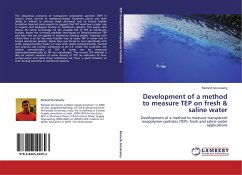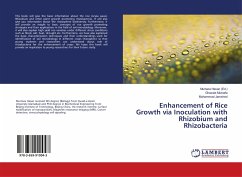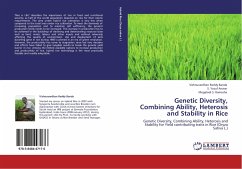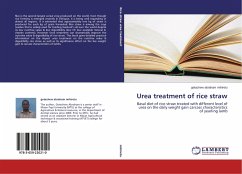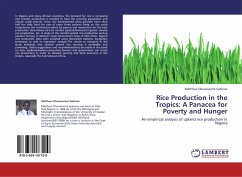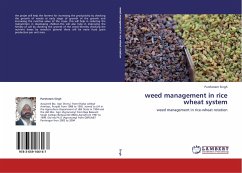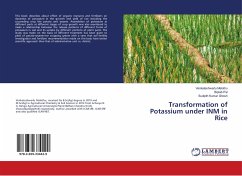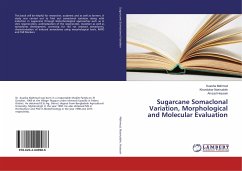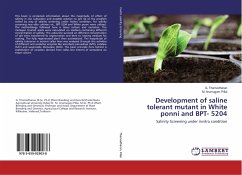
Development of saline tolerant mutant in White ponni and BPT- 5204
Salinity Screening under invitro condition
Versandkostenfrei!
Versandfertig in 6-10 Tagen
33,99 €
inkl. MwSt.

PAYBACK Punkte
17 °P sammeln!
This book is contained information about the magnitude of effect of salinity in rice cultivation and possible solution to get rid of the problem solved by way of salinity screening under Invitro condition. For salinity screening two elite cultivars viz., BPT-5204 and White ponni were utilized. The methodology followed here is tissue culture and mutation. The mutagen treated seeds were inoculated on medium containing different concentration of salinity. The callus line survived on different concentration of salt were transferred to regeneration and then to rooting medium for rooting. The fully ...
This book is contained information about the magnitude of effect of salinity in rice cultivation and possible solution to get rid of the problem solved by way of salinity screening under Invitro condition. For salinity screening two elite cultivars viz., BPT-5204 and White ponni were utilized. The methodology followed here is tissue culture and mutation. The mutagen treated seeds were inoculated on medium containing different concentration of salinity. The callus line survived on different concentration of salt were transferred to regeneration and then to rooting medium for rooting. The fully regenerated plant then acclimatized. The magnitude of salinity tolerance in mutant callus lines was analysed through the activities of different anti oxidative enzymes like ascorbate peroxidase (APX), catalase (CAT) and superoxide dismutase (SOD). The basic principle here behind is exploitation of variation derived from callus line interms of somaclone via tissue culture.



